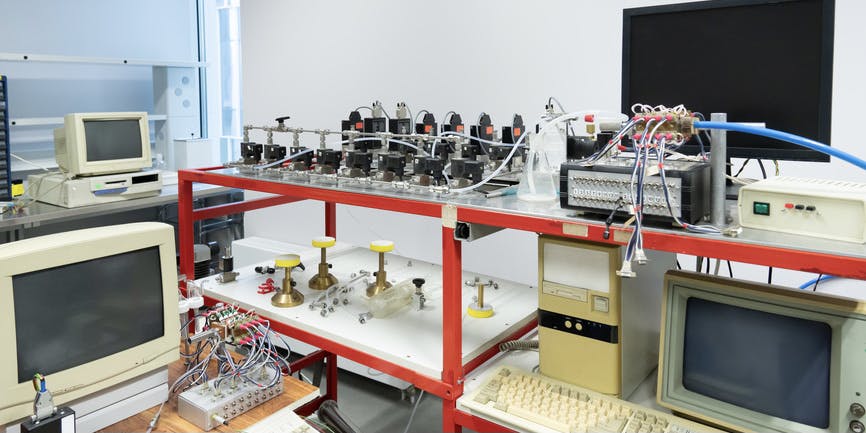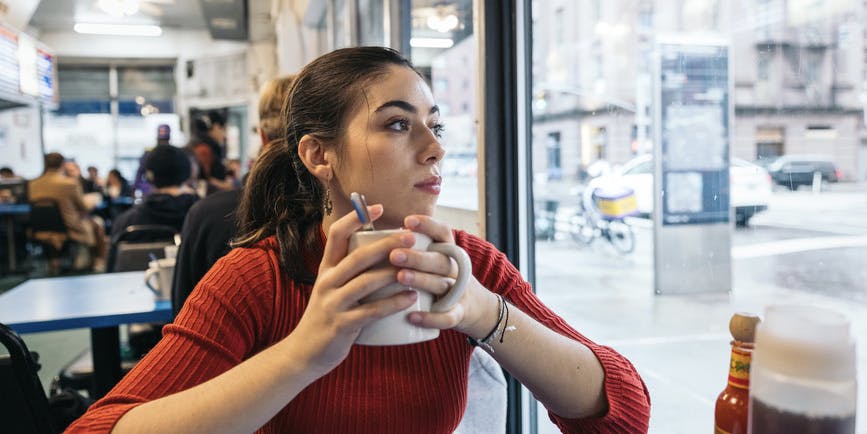How will technology transform our healthcare?

Topics
Some people may claim that even the best technology won’t make a dent in our fragmented mess of a healthcare system. But this week, we share a few ways AI, ChatGPT + chatbots are already affecting how we find care—in helpful + sometimes dangerous ways.
Then, we close with healthcare news about questionable tattoo ink safety, Covid-19 vaccine updates and abortion pill studies retracted for non-tech reasons. But first, use your physical fingers to scroll down into your digital….
- Checkup: living in the material world
- As If! AI papers + health-tech + chatbots
- Healthcare: ink danger + jabs + retractions
The Checkup
- 6 tips for avoiding back pain before + while flying
- Know the tricky risks + symptoms of lung cancer
- A fascinating chat abt what it’s like to be a sociopath
- How can a yeast infection mess with your period?!
- The 411 on Amy Schumer + Cushing’s syndrome
- A list of 9 things therapists do when feeling lonely
- Dive into what we know about THC + heart health
- Men talking abt male birth control may surprise you
- These running clubs are blasting systemic barriers
- The fallout when body-positive influencers lose weight
- It’s time we bust these 9 healthy cooking myths
Actually Inaccurate?!

According to Time, incorporating AI into medical research does not bode well for scientific accuracy.
In a new study, articles produced by ChatGPT were far better written compared to students—even when students worked with ChatGPT. But the solo ChatGPT articles often included plagiarized content, and up to 70% of their cited references were entirely inaccurate! To make things even scarier, the mistakes would have escaped detection had they not been fact-checked by students or read by faculty members who understood the data.
If you’re looking for health guidance written by actual humans, our team churns out easily digestible resource articles to keep your skin, hair, nether regions, finances + more feeling great.
All In (on the future of health tech)

humbition founder Slava Rubin feels there’s a lot to get jazzed about when it comes to how technology will shape our future healthcare experiences. “If you take a nap and wake up ten years from now, I think you're going to see incredible things that AI has been able to help change and augment,” Slava tells us in an exclusive interview. He believes ChatGPT will become first-level triage for people in medical deserts so they won’t have to go to packed ERs hours from home. And better tech will erase the paperwork mess that can drown us after even one major medical issue. During a time when finding enthusiasm for our healthcare system can feel impossible, this chat will give you a reenergizing boost.
Abortion Information (upgrade)

Speaking of medical deserts: An app named Charley is helping people find abortion care—even in states where they're illegal.
Charley only requests the user's zip code and the first day of their last period—data that gets encrypted + deleted soon after. The chatbot then guides users through their abortion options, which may include driving to a clinic in another state or getting abortion pills online. Charley also offers information about funds, anti-abortion center warnings, pain medication options + more. The chat can take up to 20 minutes. But the bot doesn’t save any user information, so there’s no information to be subpoenaed, should the case arise.
To learn more about how Charley’s tech is transforming safe abortion education + access, head to PopSugar.
Healthcare 411
Lab study questions safety of tattoo ink ingredients (US News). A new study found that 90% of tattoo ink samples made by various manufacturers contained ingredients not listed on their labels. This includes polyethylene glycol, which can cause organ damage. The findings are timely because the FDA will soon regulate tattoo ink production.
Why older adults need another Covid-19 shot (Time). Updated CDC recommendations suggest that adults over 65 get a Covid-19 booster this spring at least four months after their last dose. The new formula has proved effective against the JN.1 variant, lowering severe illness risk. But only 40% of older adults have gotten it, which is one they continue to make up almost 70% of Covid-19 hospitalizations. Another reason (as we’ve reported before) is that not enough eligible people take Covid-19 antivirals when they get an infection. If you’re at high risk for severe illness, explore our online Covid care.
Influential abortion-pill studies retracted: the science behind the decision (Nature). Sage Publications retracted three studies after investigations found flaws in survey sourcing, population comparison and misleading analysis. The authors claim they fully complied with Sage’s disclosure requirements, but the investigations found a reviewer on all three papers has affiliations with an anti-abortion organization.
Topics
Sign up for the free Dr. B newsletter for a weekly report on the latest in healthcare + research-based advice for staying healthy and mentally well.